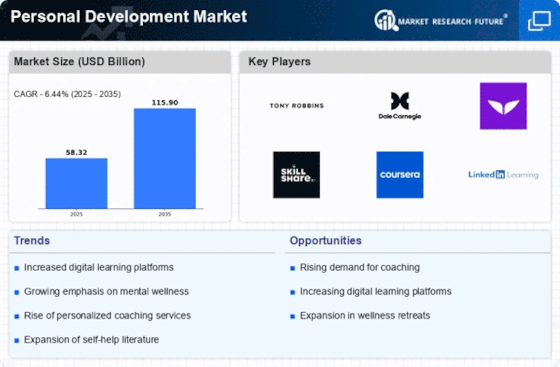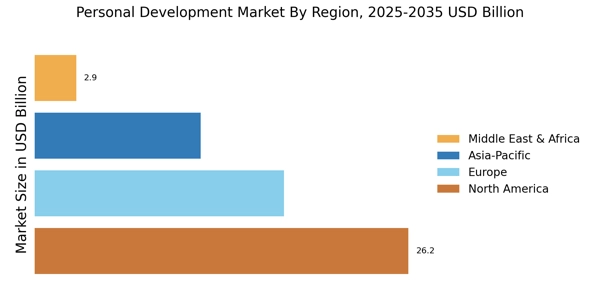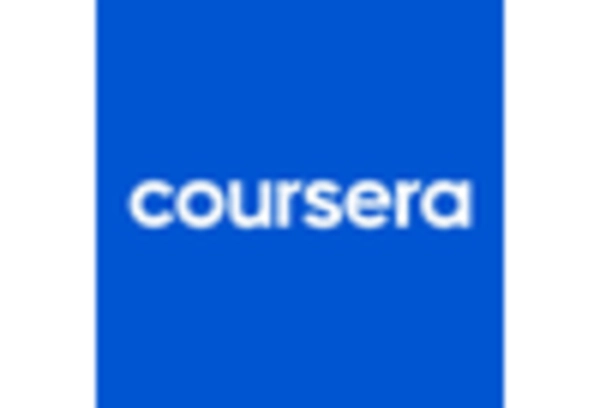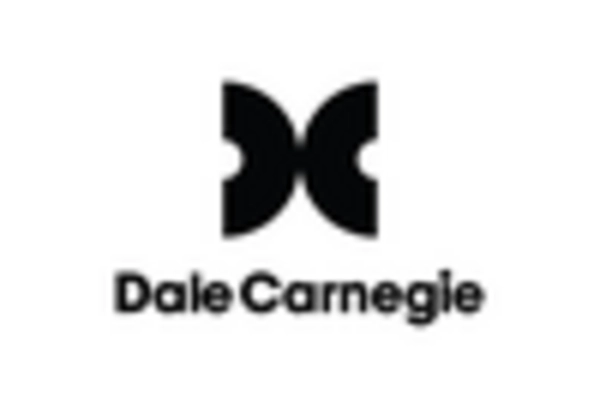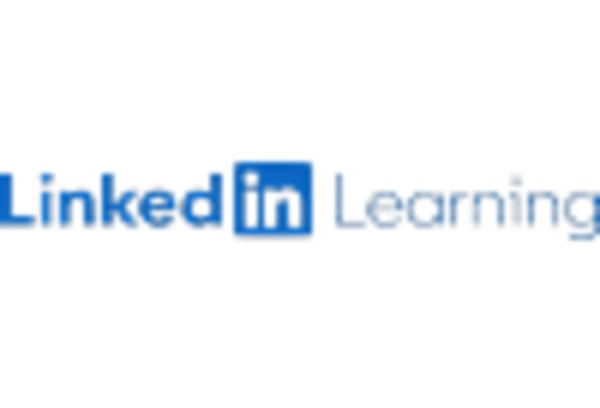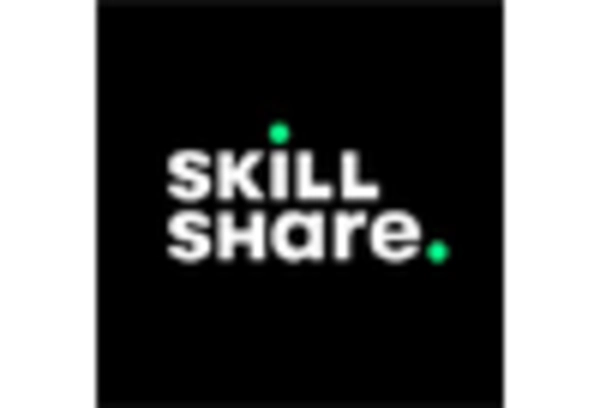Growing Awareness of Mental Health
The increasing awareness of mental health issues significantly influences the Personal Development Market. As society becomes more attuned to the importance of mental well-being, individuals are actively seeking resources that promote emotional resilience and psychological health. This trend is evident in the rising demand for mindfulness practices, stress management techniques, and mental health coaching. Market data suggests that the mental wellness segment within the personal development sector is expanding rapidly, with consumers prioritizing mental health alongside physical health. This shift in focus not only drives growth in the industry but also encourages the development of comprehensive programs that address the holistic needs of individuals.
Technological Advancements in Learning
Technological advancements play a pivotal role in shaping the Personal Development Market. The proliferation of digital platforms and mobile applications has revolutionized how individuals access personal development resources. E-learning platforms, webinars, and mobile apps provide convenient and flexible learning opportunities, catering to diverse learning styles. Data indicates that the e-learning market is expected to grow substantially, with a significant portion attributed to personal development content. This shift towards technology-driven learning solutions not only enhances accessibility but also allows for personalized learning experiences. As technology continues to evolve, the industry may see an influx of innovative tools and resources designed to meet the needs of a tech-savvy audience.
Corporate Investment in Employee Development
Corporate investment in employee development is a key driver of the Personal Development Market. Organizations increasingly recognize the value of fostering a culture of continuous learning and personal growth among their employees. This trend is reflected in the rising budgets allocated for training programs, workshops, and coaching services aimed at enhancing employee skills and well-being. Data indicates that companies that prioritize employee development experience higher retention rates and improved productivity. As businesses strive to remain competitive, the demand for personal development resources tailored to corporate settings is likely to grow, creating opportunities for providers in the industry to offer specialized programs.
Shift Towards Holistic Development Approaches
The Personal Development Market is witnessing a shift towards holistic development approaches that encompass various aspects of personal growth. Individuals are increasingly seeking comprehensive solutions that integrate physical, mental, and emotional well-being. This trend is evident in the rising popularity of programs that combine fitness, mindfulness, and personal coaching. Market data suggests that consumers are more inclined to invest in services that address their overall well-being rather than focusing on isolated areas of development. This holistic perspective not only enhances the effectiveness of personal development initiatives but also encourages providers to innovate and diversify their offerings to meet the evolving needs of their clientele.
Increased Demand for Self-Improvement Resources
The Personal Development Market experiences a notable surge in demand for self-improvement resources. Individuals increasingly seek tools and strategies to enhance their personal and professional lives. This trend is reflected in the growing popularity of online courses, workshops, and coaching services. According to recent data, the market for self-help books and online courses has expanded significantly, with revenues projected to reach billions in the coming years. This heightened interest in self-improvement is driven by a desire for personal growth, career advancement, and improved mental well-being. As more people recognize the value of investing in their personal development, the industry is likely to witness continued growth, fostering innovation and diversification in offerings.


